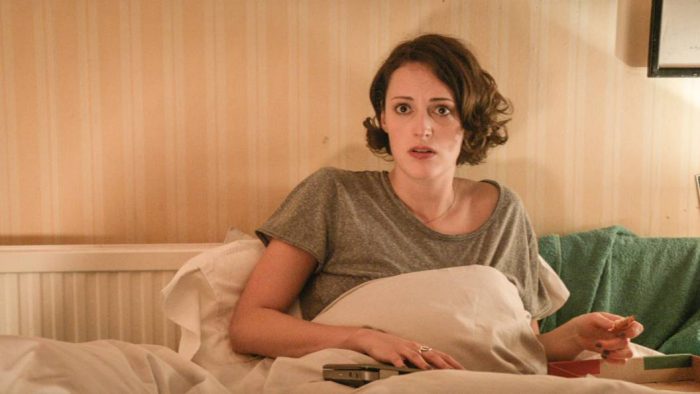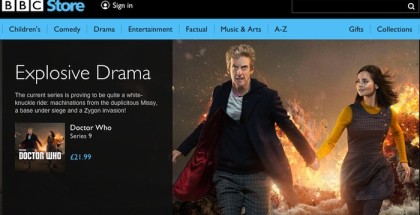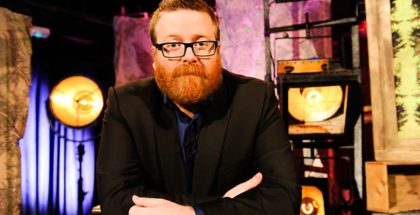BBC Three doubles reach in successful first year
David Farnor | On 19, Jul 2017
BBC Three has doubled its reach in its first year, as the online channel builds an audience on social media as well as on BBC iPlayer.
The decision to move BBC Three online was a controversial one, risking a reduced audience as well as less innovation and investment in new talent, which had always been a fundamental part of the channel’s content and identity. Its first year, though, has been a success, with the RTS Awards crowning the experimental platform Channel of the Year.
This has partly been due to the growth of BBC iPlayer, which saw programme requests jump 9 per cent year-on-year, with 246 million monthly requests received on average – iPlayer’s biggest year on record. A lot of iPlayer’s activity, though, is driven by BBC One and BBC Two content, with Planet Earth II racking up 20 million requests on BBC iPlayer. (Combined with its 30.3 million viewers, it’s the best performing natural history programme in at least 15 years.)
The big secret to BBC Three’s success, rather, has been its ability to find audiences directly through social media, breaking with years of broadcast tradition. An active presence on Twitter, YouTube and Facebook has been maintained throughout that first year, with Facebook singled out as “particularly successful” for BBC Three’s short-form content.
This is due to a number of viral successes, including the weekly series Amazing Humans and Things Not To Say, both of which fulfil the public service broadcaster’s aims of producing “snackable, sharable content with real public purpose”. An episode of BBC Three’s Amazing Humans about the ballet dancer, Gabi Shull, for example, went viral on Facebook with over 95 million views globally.
On YouTube, there were 10.7 million views of BBC Three content in March 2017 (2.4 million in the UK) compared with 1.3 million at launchin February 2016 (857,000 in the UK). The number of users globally engaging with BBC content on Facebook, meanwhile, was 6.9 million per week in March 2017, up from 266,000 last February.
Since November, BBC Three has seen an average one million unique browsers per week to its own website and produced a number of hits on BBC iPlayer including Thirteen – with the first episode receiving over 3 million requests. Comedy Fleabag has also proven popular with critics as well as audiences, winning its star, Phoebe Waller-Bridge, a raft of awards, including two accolades from the Royal Television Society and a BAFTA.
The result is a channel that has successfully doubled its reach in its first year, according to BBC research (based on Facebook, comScore, BARB and GfK data). 3.5 per cent of 16- to 34-year-olds in the UK used the service each week in Q2 2016, a share that has since risen to 8.1 per cent in the first three months of 2018.
The cost per user reach is not yet fully captured by the BBC, although the corporation as a whole costs £2.80 a week, once the TV Licence fee is broken down. That £2.80 not only covers BBC iPlayer and BBC Three, but all the BBC service, from radio and websites to news.
The figures have been announced in the BBC’s first Annual Report under its new Royal Charter. As part of that new Charter, the government has ordered the BBC to reveal the names of staff and talent who are paid over £150,000. The move has led to a lot of criticisms about how much it pays Chris Evans and Gary Linekar, among others, as well as the fact that two-thirds of its top paid staff are men.
“The BBC produces some of the nation’s most loved television and radio and the most trusted news, while operating in a competitive market with the likes of Sky, ITV, Netflix and Amazon,” said BBC Director General Tony Hall, who noted that less than a quarter of one per cent of its staff fell into that bracket.
“It is widely acknowledged that on the whole the BBC pays less than its competitors while delivering high-quality and award-winning content,” he added. “We have significantly reduced the total bill spent on paying talent, down again this year by 2.5 per cent. The bill for top talent is down 10 per cent year on year, and down by a quarter over the last five years. The amount we pay the very highest earners has dropped by 40 per cent across the same period. At the same time, there has been significant cost inflation across the industry, so that BBC has made savings in an environment where costs are significantly up.”
“We’ve set a clear target for 2020,” he continued, addressing the issue of diversity. “We want all our lead and presenting roles to be equally divided between men and women. And it’s already having an impact. If you look at those on the list who we have hired or promoted in the last three years, 60 per cent are women and nearly a fifth come from a BAME background.”
“The reality is that the BBC today costs less in real terms than it did 20 years ago,” he concluded. “But now we offer four times as many TV channels, twice as many national radio stations, plus our video on-demand service – iPlayer – and everything we do online. All for less than three pounds a week.”
While the broadcaster faces a backlash about talent spending, BBC Three continues to innovate with its online content. At a time when the broadcaster is fighting competition from Netflix, Amazon and others, that’s money well spent. For more on what’s coming soon to BBC Three, click here – or head this way for our guide to what’s on BBC Three and what’s worth watching.




















